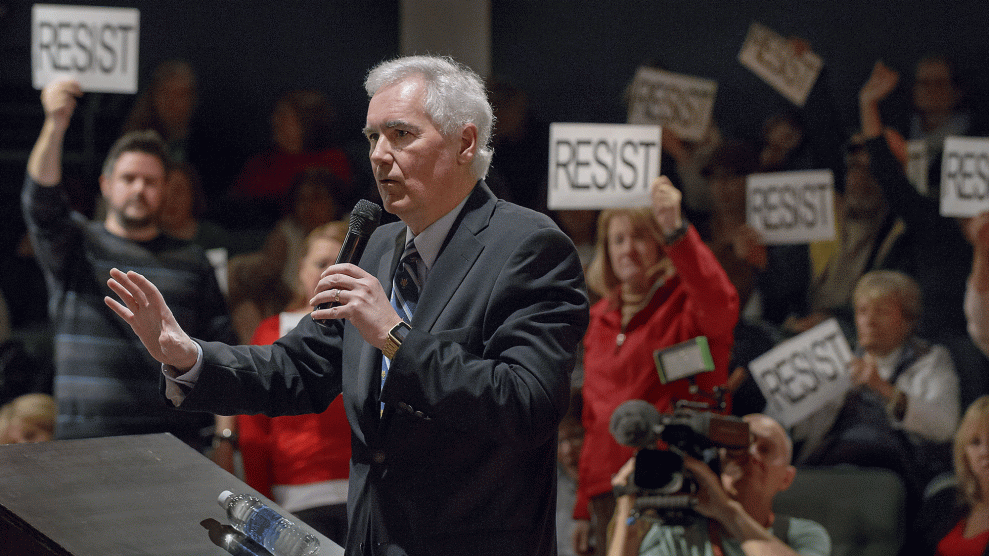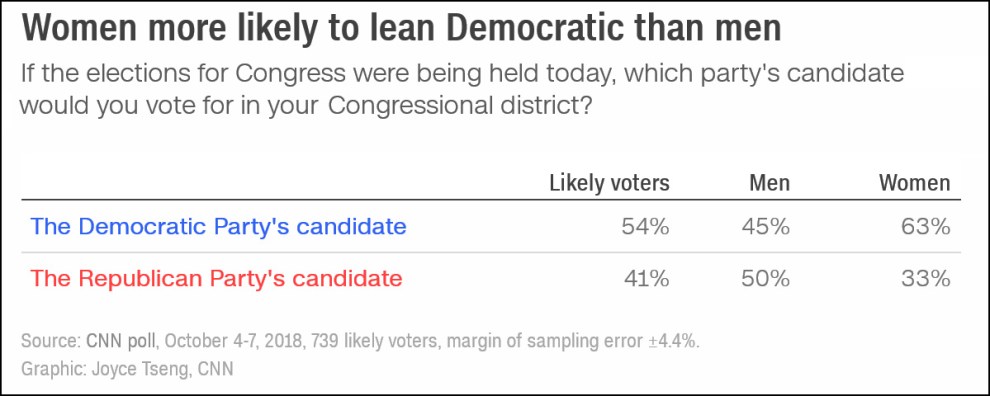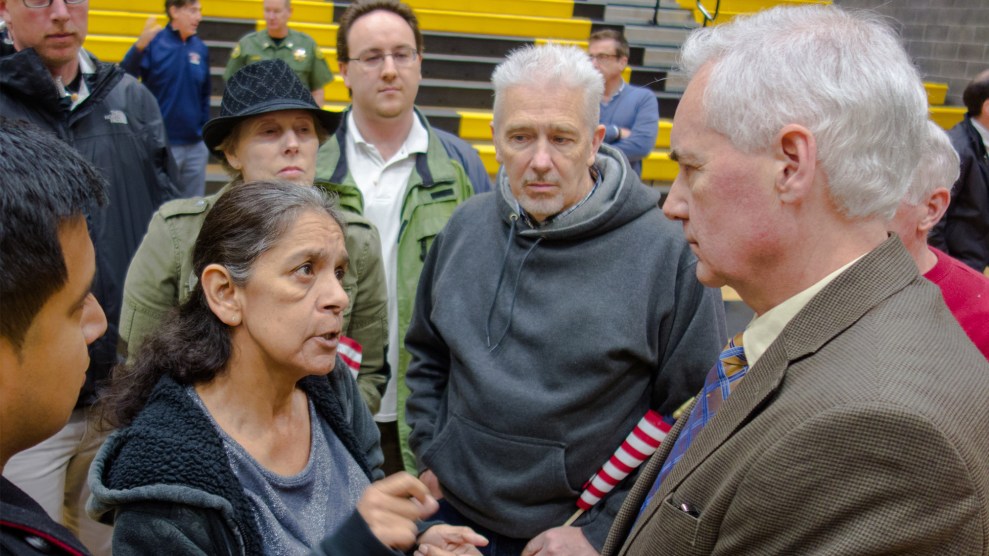
Rep. Tom McClintock (R-Calif.) at a town hall meeting in February 2017.Randall Benton/ZUMA Press
As the appointment of Supreme Court Justice Brett Kavanaugh is having a ripple effect on congressional races across the country, the topic sparked a heated exchange between Rep. Tom McClintock (R-Calif.) and his Democratic challenger, national security strategist Jessica Morse.
On Monday, the two met for a debate, hosted by northern California’s NPR affiliate KQED, hitting on a range of issues, including health care, taxes, climate change, and forest health—a major issue in McClintock’s rural 4th District. But the candidates’ most glaring differences emerged when reporter Katie Orr noted that McClintock, who the American Conservative Union rates as California’s most conservative House member, called Kavanaugh’s appointment “momentous and joyous” and said that the accusations against the judge were “grotesque.”
“Do you believe that Dr. Ford was lying when she said she was 100-percent sure her attacker was Judge Kavanaugh?” Orr asked McClintock, referring to Christine Blasey Ford. “In our society, you can not level an accusation without evidence. That is called slander, it’s called libel, it’s called defamation,” said McClintock. “If you do it under oath, it’s called perjury. I don’t know if she perjured herself or not. But I know this: There was absolutely no corroborative evidence to her accusations or any of the other accusations, which were grotesque in nature, leveled at Judge Kavanaugh.”
McClintock added that he thinks the reaction from the American people “has been very decidedly against the circus that the Senate Democrats created when they made these charges with absolutely no evidence behind it.”
Morse had a different take. “When one in three women will face a sexual assault in their lifetime but 60 percent of those assaults will go unreported, the question we should be asking isn’t, ‘What’s wrong with women?’ The question we should be asking is what is, ‘What is wrong with our system?’ And the problem with our system is we have elected officials like Congressman McClintock who came out this week and said that Dr. Ford’s testimony was ‘crazy talk.’” She noted that McClintock had voted against the Violence Against Women Act and said that “On every level he’s voted to make women less safe and to penalize survivors for coming forward.”
“What I think I just heard Jessica say is [she supports] a system of principles of justice in which accusation is the same as conviction,” McClintock fired back. “I don’t think most people would recognize that as a fair or just society.”
It was not surprising that the two candidates took opposing sides on an issue where opinions have largely split along partisan lines. Yet it was notable that Morse did not seek a middle ground that might have appealed to moderate or undecided voters in her traditionally conservative district.
The 4th District is a sprawling swath of the Sierra Nevada that has long been a Republican stronghold. In 2016, Donald Trump beat Hillary Clinton by 16 points there, and McClintock crushed his opponent by 25 points. Last November, when the Democratic Congressional Campaign Committee added it to its list of battleground districts where it thinks Democrats have a fighting chance, McClintock’s campaign manager told the Los Angeles Times, “To suggest the district is vulnerable is fanciful.”
Since then, however, the site CQ Roll Call has changed its rating for the district from “Solid Republican” to “Likely Republican.” Morse’s campaign has routinely outraised McClintock’s, and parts of the district were early hotbeds of anti-Trump activism. With a resume that includes work for USAID in Iraq and the State Department, Morse may have crossover appeal. On Tuesday, she posted a picture from a “Conservatives4Morse” event with Steve Schmidt, a former advisor to the late Sen. John McCain.
In the radio debate, Morse called the Kavanaugh nomination a “hyper-partisan process” and a “disgrace to our constitution,” and she insinuated that McClintock was part of Washington’s hyper-partisan problem.
Earlier that day, the Sacramento Bee stated much the same when the paper’s editorial board announced its endorsement for Morse: “McClintock votes the Republican Party line even when it goes against the best interests of his district. Too often, he is part of President Donald Trump’s amen chorus,” the paper wrote.
McClintock had the last word on that topic, however. Morse lamented that Kavanaugh’s appointment was “pushed forward” without the historic standard of 60 votes, saying “We have debased our Supreme Court into a partisan process.” In 2013, Senate Democrats triggered the “nuclear option” to confirm federal judges without a filibuster-proof majority. Senate Republicans confirmed Supreme Court Justice Neil Gorsuch with a simple majority in 2017. “I don’t remember Jessica protesting when Harry Reid and the Democrats reduced that 60-vote threshold for non-US Supreme Court appointments,” McClintock squeezed in before the moderator moved on to other topics.
This may be the last debate between the two candidates. They first faced each other in late September—during which McClintock called Morse a “carpetbagger,” even though he does not live in the district. They have been unable to agree on any future dates.













